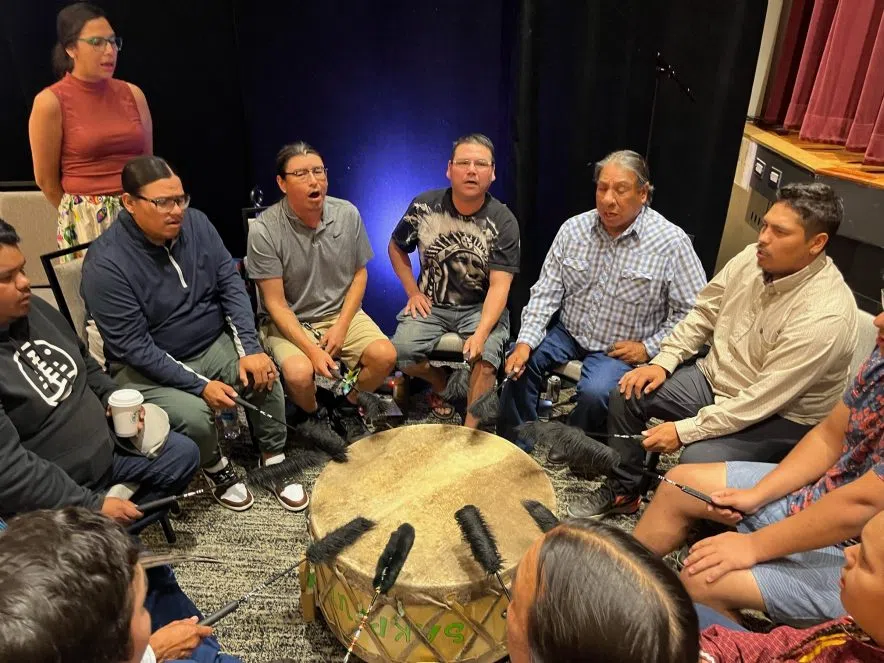“We are sorry,” are three words Dakota and Lakota First Nations have been waiting to hear after being viewed as “second class First Nations” for decades by Canada.
On Monday, hundreds of youth, elders, leaders and members of nine Indigenous communities cheered after hearing those words as they gathered at Dakota Dunes Casino on Whitecap Dakota First Nation.
The Indigenous communities include the Birdtail Sioux Dakota Nation, Canupwakpa Dakota First Nation, Dakota Plains Wahpeton First Nation, Dakota Tipi First Nation, Sioux Valley Dakota Nation, Standing Buffalo Dakota Nation, Wahpeton Dakota Nation, Whitecap Dakota First Nation and Wood Mountain Lakota First Nation.
Canada’s Minister of Crown-Indigenous Relations Gary Anandasangaree delivered the apology on behalf of the federal government, acknowledging the nine First Nations as Aboriginal Peoples of Canada with constitutionally protected Section 35 rights. He said the apology was significant and long overdue.
Despite having a significant presence north of the Canada-US border, both Dakota and Lakota First Nations were previously viewed as refugees and were not invited to sign Treaties in the 1870s. This resulted in no Treaty rights or benefits such as smaller reserves and less economic support.
“This was wrong. You are allies, You are not refugees,” Anandasangaree said.
“We are sorry,” are three words nine Dakota and Lakota First Nations have been waiting to hear after being viewed as “second class First Nations” for decades by Canada. (Mia Holowaychuk/650 CKOM)
“Today is part of a new era of nation-to-nation relationship and our work towards reconciliation with the Dakota and Lakota First Nations in Canada to move forward in dismantling the harmful legacies of colonialism, to acknowledge past wrongs, and to rebuild trust,” he said.
Anandasangaree acknowledged these First Nations roles in developing the nation’s history, such as its allyship with the Crown in defending what is now Canada during the War of 1812.
Moving forward, Anandasangaree said the government will work together with the Dakota and Lakota First Nations through meaningful, community-driven discussions that are based on each Nation’s “unique priorities and vision “ starting on Monday afternoon.
Chief Rodger Redman said the Standing Buffalo Dakota Nation accepted the apology with the hope it would lead to true reconciliation and meaningful action.
“Today we stand up and assert our sovereignty going forward,” Redman said. “Let this apology be a foundation for rebuilding a nation-to-nation relationship.”
Whitecap Dakota Nation Chief Darcy Bear explained the federal government will be held accountable in terms of compensation and correcting historical wrongs.
“For too long, the Dakota in Canada have been treated as foreigners in a land that has been our home since time immemorial and in a country that we helped create, defend, and build into a multicultural beacon of prosperity and tolerance,” Bear said in a release from the federal government.
Last year, Canada recognized Dakota as Aboriginal Peoples under the constitution by signing a self-government agreement.
“This apology today builds on that affirmation, and takes us one further step ahead in the journey of healing and recognition that is so long overdue,” Bear said.
—With Files from the Canadian Press
EDITOR’S NOTE: An earlier version of this story spelled Chief Rodger Redman’s name incorrectly. We regret the error.












